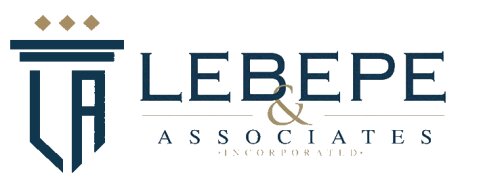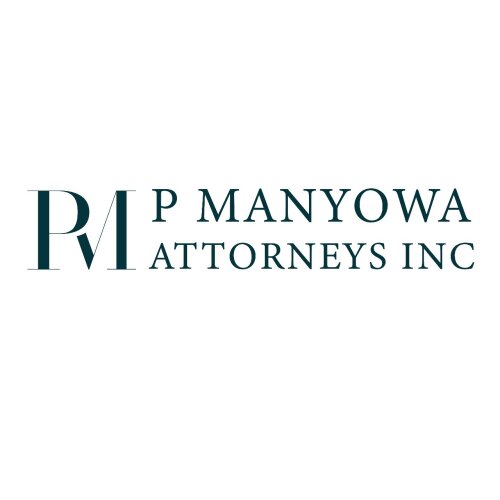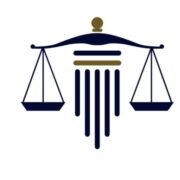Best Communications & Media Law Lawyers in Polokwane
Share your needs with us, get contacted by law firms.
Free. Takes 2 min.
List of the best lawyers in Polokwane, South Africa
About Communications & Media Law in Polokwane, South Africa
Communications & Media Law in Polokwane, nestled in the Limpopo province of South Africa, covers a broad range of regulatory and legal issues related to the transmission of information. This area of law primarily governs telecommunications, broadcasting, the internet, print media, advertising, and digital communications. With the growth of digital technology and the importance of media in shaping public discourse, Communications & Media Law has become particularly significant in ensuring freedom of expression while balancing the need to prevent harm and maintain public order. Legal professionals in Polokwane specialize in navigating the complex intersection of global communications and local legislation.
Why You May Need a Lawyer
There are several scenarios where individuals or businesses in Polokwane may require legal assistance in Communications & Media Law. These include issues related to:
- The development or distribution of digital content that may infringe on intellectual property rights.
- Advertising disputes, including misleading advertising claims or breaches of advertising regulations.
- Broadcasting rights and licensing agreements or negotiations.
- Defamation claims arising from statements made in media outlets or on social media platforms.
- Privacy concerns related to data protection laws and the handling of personal information.
- Regulatory compliance for telecommunications providers.
Local Laws Overview
In Polokwane, Communications & Media Law is shaped by a variety of national and regional statutes. Some of the key aspects include:
- The Constitution of South Africa, which upholds the freedom of expression but also sets limitations where speech incites violence or hatred.
- The Promotion of Access to Information Act (PAIA), which ensures transparency in public and private bodies by granting citizens access to information.
- The Films and Publications Act, regulating the distribution of films and publications to protect younger audiences from inappropriate content.
- The Electronic Communications Act, focusing on licensing and regulation of telecommunication and broadcasting services.
- The Protection of Personal Information Act (POPIA), aimed at safeguarding personal information processed by both public and private entities.
Frequently Asked Questions
What is Communications & Media Law?
Communications & Media Law encompasses legal issues related to the transmission of information via various media and communication platforms, and includes regulation of telecommunication networks, broadcasting, digital media, and privacy rights.
How does the law protect freedom of expression in South Africa?
The South African Constitution advocates for the freedom of expression while maintaining that this right is not absolute. Limitations are in place to prevent hate speech, incitement of violence, and to protect individuals’ privacy and dignity.
What should I do if someone is defaming me online?
Consulting a Communications & Media Lawyer is advisable, as they can guide you on defamation laws and whether you have a case. They may assist in legal proceedings to remove defamatory content or seek damages.
What are my rights under the Protection of Personal Information Act (POPIA)?
Under POPIA, you have the right to be informed about how your personal information is collected and processed, to access and correct your data, and to object to certain types of data processing.
Is broadcasting regulated differently than internet content?
Yes, broadcasting is traditionally subject to more stringent licensing and content regulations compared to internet content, which is generally more self-regulated, although internet laws are evolving to increase accountability.
How can I ensure my business complies with advertising laws?
A lawyer specializing in Communications & Media Law can offer advice on compliance with advertising standards and codes, verifying that claims made in ads are truthful and non-misleading.
What actions can be taken against misleading advertisements?
Complaints can be filed with entities such as the Advertising Regulatory Board (ARB), which can investigate and require corrective action, or take your case to court for false advertising claims.
Can I request access to information from a public body in Polokwane?
Yes, under PAIA, you can request access to records held by public bodies, provided it is not exempt under certain conditions protecting other rights, such as national security.
What types of licenses may I need to broadcast in South Africa?
Broadcasting requires obtaining licenses from the Independent Communications Authority of South Africa (ICASA), including a broadcasting license alongside spectrum licenses for transmitting radio frequencies.
How does digital copyright law affect me when using content online?
Digital copyright law protects creators' rights over their digital content. Unauthorized use, reproduction, or distribution can lead to legal disputes. Seeking permission or licensing content is necessary to avoid infringement.
Additional Resources
For those seeking further information or assistance with Communications & Media Law in Polokwane, consider reaching out to:
- Independent Communications Authority of South Africa (ICASA)
- Advertising Regulatory Board (ARB)
- South African Film and Publications Board (FPB)
- Local legal aid clinics or the Law Society of South Africa for referrals to qualified attorneys.
Next Steps
If you require legal assistance with Communications & Media Law in Polokwane, begin by preparing all relevant documentation and clarifying your main issues or requirements. Then contact a qualified Communications & Media Law attorney who can offer specialized guidance and assess your legal options. Many lawyers will provide an initial consultation to discuss your needs and propose a plan of action. Additionally, attending relevant workshops or seminars on media law can equip you with valuable knowledge applicable to your situation.
Lawzana helps you find the best lawyers and law firms in Polokwane through a curated and pre-screened list of qualified legal professionals. Our platform offers rankings and detailed profiles of attorneys and law firms, allowing you to compare based on practice areas, including Communications & Media Law, experience, and client feedback.
Each profile includes a description of the firm's areas of practice, client reviews, team members and partners, year of establishment, spoken languages, office locations, contact information, social media presence, and any published articles or resources. Most firms on our platform speak English and are experienced in both local and international legal matters.
Get a quote from top-rated law firms in Polokwane, South Africa — quickly, securely, and without unnecessary hassle.
Disclaimer:
The information provided on this page is for general informational purposes only and does not constitute legal advice. While we strive to ensure the accuracy and relevance of the content, legal information may change over time, and interpretations of the law can vary. You should always consult with a qualified legal professional for advice specific to your situation.
We disclaim all liability for actions taken or not taken based on the content of this page. If you believe any information is incorrect or outdated, please contact us, and we will review and update it where appropriate.












